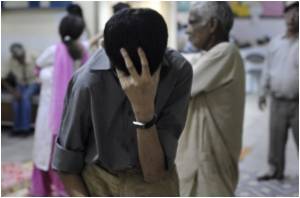Mental disorders in young adulthood are a result of child abuse, reveals a study.

Doubts have been raised about the reliability and validity of these reports, given that past maltreatment is often unreported, memories can be reconstructed and the reports can be unstable over time.
Dr. Kate M. Scott, and colleagues at University of Otago-Wellington, Wellington, New Zealand, linked national child protection agency records with data from a nationally representative community survey of mental disorders among young adults age 16 to 27.
The survey included 2,144 young adults, 221 of whom had a history of child maltreatment as indicated by child protection agency records.
After adjusting for demographic and socioeconomic factors, a history of abuse or neglect was associated with having any mental disorder and with five individual mental disorders-including anxiety, mood and substance abuse conditions-both over a lifetime and in the previous year.
The strongest associations were with post-traumatic stress disorder (PTSD) and obsessive compulsive disorder .
Advertisement
"After excluding these individuals from the comparison group, the magnitude of associations increased, with child protection agency history conferring a 10-fold higher odds of 12-month PTSD, together with elevated odds of other anxiety disorders, mood disorders and drug use disorders," wrote the authors.
Advertisement
"This implies, first, that targeted mental health interventions with present or past clients of child welfare agencies are indicated in addition to the interventions currently provided to stop or reduce the maltreatment; and second, that concerted population-level strategies are required to address the needs of the many other children who also experience maltreatment," said the authors.
The study is published in a recent issue of Archives of General Psychiatry, one of the JAMA/Archives journals.
Source-ANI










